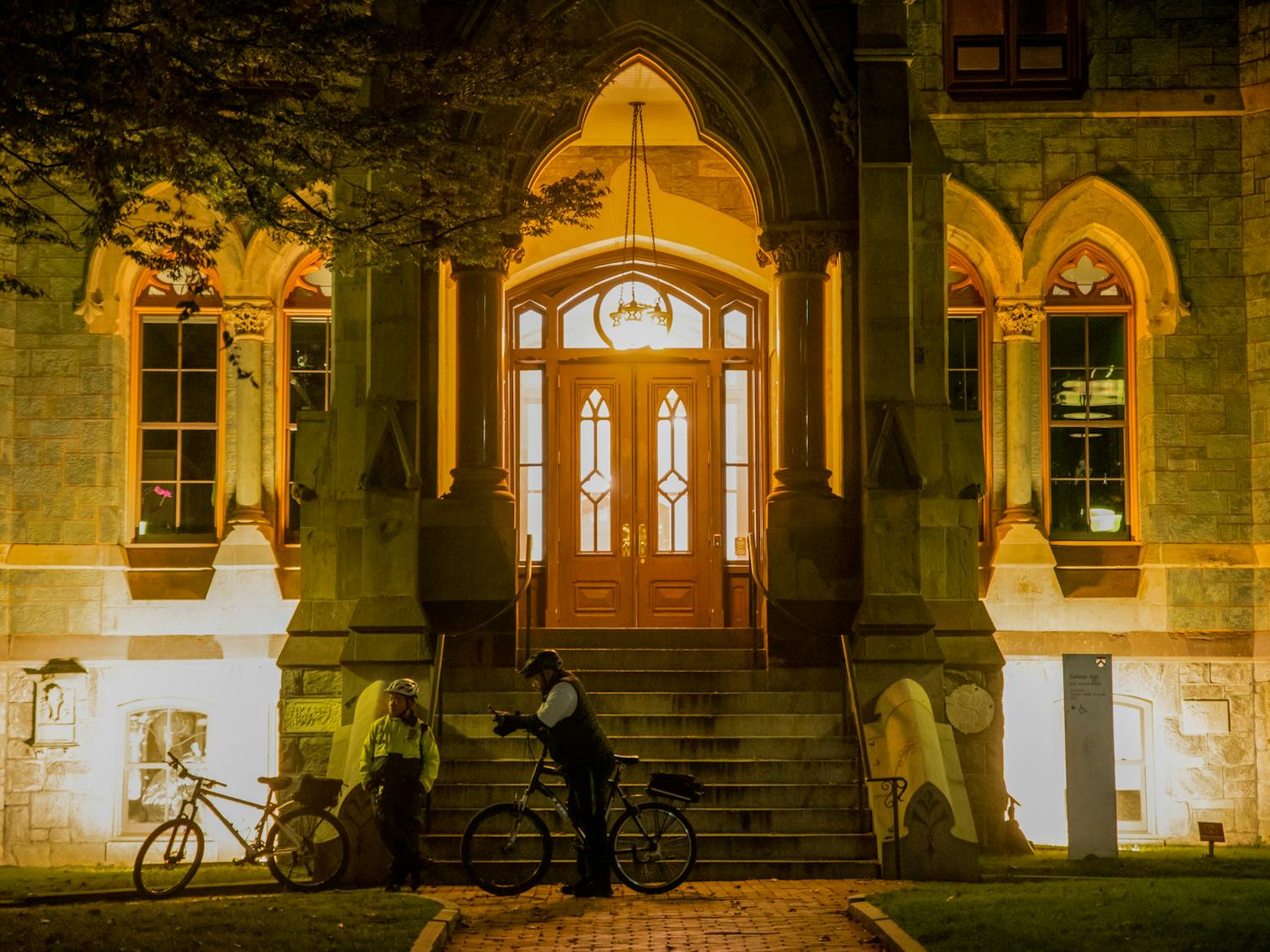Zeta Beta Tau initiated 12 sophomores and juniors on Saturday, putting the fraternity one step closer to an official return to campus.
But the process of recolonizing has come with a major challenge for ZBT - re-establishing itself as a legitimate fraternity, separate from the underground group that many students associate with the name ZBT.
The fraternity was expelled from campus in January 2004 after participants at an unofficial pledge event were sent to the emergency room for alcohol poisoning and bodily injuries.
It was the fraternity's fourth policy violation in three years.
But after ZBT was officially dissolved, an off-campus group with no ties to the University or national ZBT sprung up from its remnants, according to ZBT and University officials.
Matt Tobe - the director of expansion for national ZBT - said he ran into some problems as he worked to recolonize the frat on campus.
Some students didn't know the difference between the underground group and the re-established, legitimate ZBT, he said, but "we've tried to get rid of those rumors."
"They have the right to exist on campus," he said. "But they do not have the right to use the letters ZBT."
One of the stipulations of ZBT being permitted to recolonize is that they cannot allow any students associated with the underground group to join the legitimate ZBT, Office of Fraternity and Sorority Affairs Director Scott Reikofski said.
He said he has a vague idea of which students are a part of the underground group, and he is working with national ZBT to make sure they don't taint the recolonized ZBT.
"The behavior of the remnants of the old chapter can affect what's going on with the new chapter, and that's not particularly fair to the new chapter," he said.
The students who were initiated on Saturday are now brothers in the national fraternity, though the fraternity isn't officially recolonized yet. Reikofski expects ZBT will be provisionally recognized by the end of the semester.
The fraternity will reoccupy its old house at 39th and Locust streets next year and will participate in recruitment in the spring with other InterFraternity Council groups.
Newly initiated brother and Wharton sophomore Ben Molever doesn't see the underground society's existence as a big problem, and he thinks students will quickly learn the difference between the underground group and official ZBT as his frat becomes more visible on campus.
He also said he's proud to be in the official ZBT, and he thinks it has more perks than being in an underground group.
"We have the full connections with the ZBT past here at Penn," Molever said.
Those connections include having several local alumni mentors working with the frat.
"My role is to get them started back on campus and to make sure that, this time, when they get back organized and active, they do it right," said alumni adviser Larry Steinberg, a 1977 Wharton graduate.
"The alumni are some of the most powerful and important people in the business world today, and we would like to continue the tradition," he said.
But ZBT may still have a ways to go before completely disassociating itself from the underground group.
Some students are completely unaware of the difference between the two "ZBTs."
Nursing freshman Tiffany Mahuad said she has a lot of friends who frequent "ZBT parties," but she said she had no idea the parties she was referring to were actually thrown by the underground group.
But some students do know the difference and don't really care.
Wharton freshman Eric Schub said he goes to the underground group's parties often, and he's thinking about rushing there - and at official fraternities as well - in the spring.








